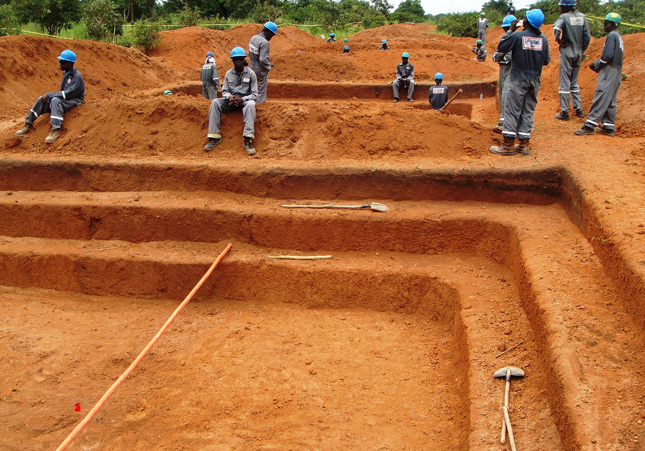-
Celeste Hicks and Laura Seay, Monkey Cage
Governance, Gender, and No Guarantees in Africa’s Oil-Rich States
June 23, 2015 By Wilson Center Staff
The discovery of oil in Chad in 1969 did not yield many immediate benefits for a population that would soon be wracked by civil war, but hopes were high by the late 1990s. Chad had largely stabilized, and a new, World Bank-backed project to build a pipeline through Cameroon to the Atlantic Ocean coast was touted as a model for socially and environmentally responsible oil exploitation in developing countries. Oil began flowing through the Chad-Cameroon Pipeline in 2003, but 12 years later, it is clear that the plan was largely a failure. Far from using oil revenues to benefit civilians by building and maintaining better public services, corruption and mismanagement plagued the project, leaving already-wealthy public officials as the biggest beneficiaries of a very expensive international development plan. Chad, meanwhile, seems to be just another case study in a long list of the resource-cursed weak countries in which leaders rely on natural-resource revenues to stay in power, thus avoiding creating the kinds of democratic, accountable institutions needed to strengthen the state and stop corruption.
Are Chad and other oil-rich African states like Nigeria or Equatorial Guinea really “resource-cursed?” Are democratic political institutions doomed if oil is discovered in a weak state? Will women ever play an equal role in Africa’s oil industries? Freelance journalist Celeste Hicks explores Chad’s oil exploitation efforts and the broader phenomenon of post-Cold War oil exploration in Africa in her new book, Africa’s New Oil: Power, Pipelines, and Future Fortunes. We chat about what she learned in the following Q&A:
Laura Seay: Chad is considered by many Western policymakers to be a bit of a backwater; it’s difficult to access and, outside of its oil, doesn’t have many natural resources. What got you interested in Chad and the oil question there? Are international policymakers right to pay little attention to the country?
Celeste Hicks: My fascination with Chad began when I was sent there as BBC correspondent in 2008, just a few months after a very serious rebel attack which had come within hours of unseating the president. It was beyond eye-opening to see how a place like Chad – one of the world’s poorest countries – was run during a time of crisis. Slowly I began to realize that almost everything that happens in Chad is influenced by the exploitation of the country’s significant oil deposits.
Continue reading on the Monkey Cage.
Sources: The Washington Post.
Photo Credit: Maintenance is performed on a fiber optic cable accompanying a buried oil pipeline from Kome, Chad, to Cameroon, courtesy of flickr user Ken Doerr.
Topics: Africa, Cameroon, Chad, China, conflict, development, economics, environment, environmental security, gender, minerals, natural resources, oil, security, World Bank
 A Publication of the Stimson Center.
A Publication of the Stimson Center.



